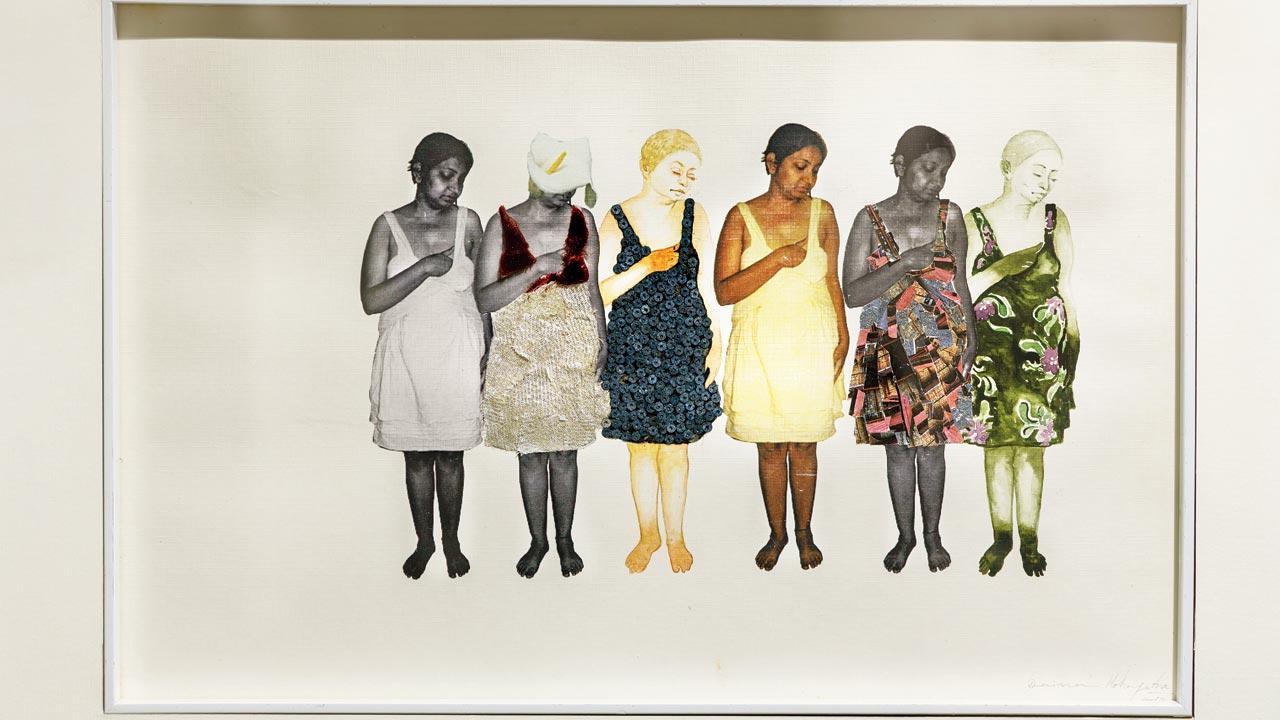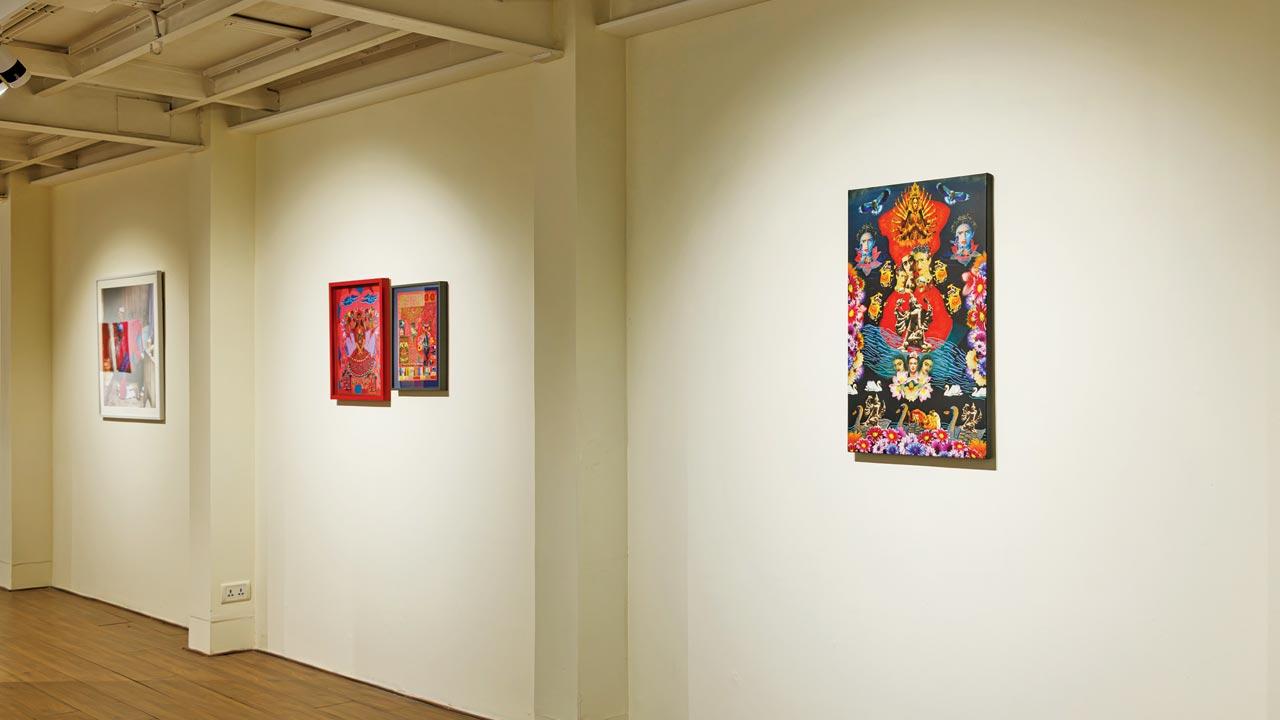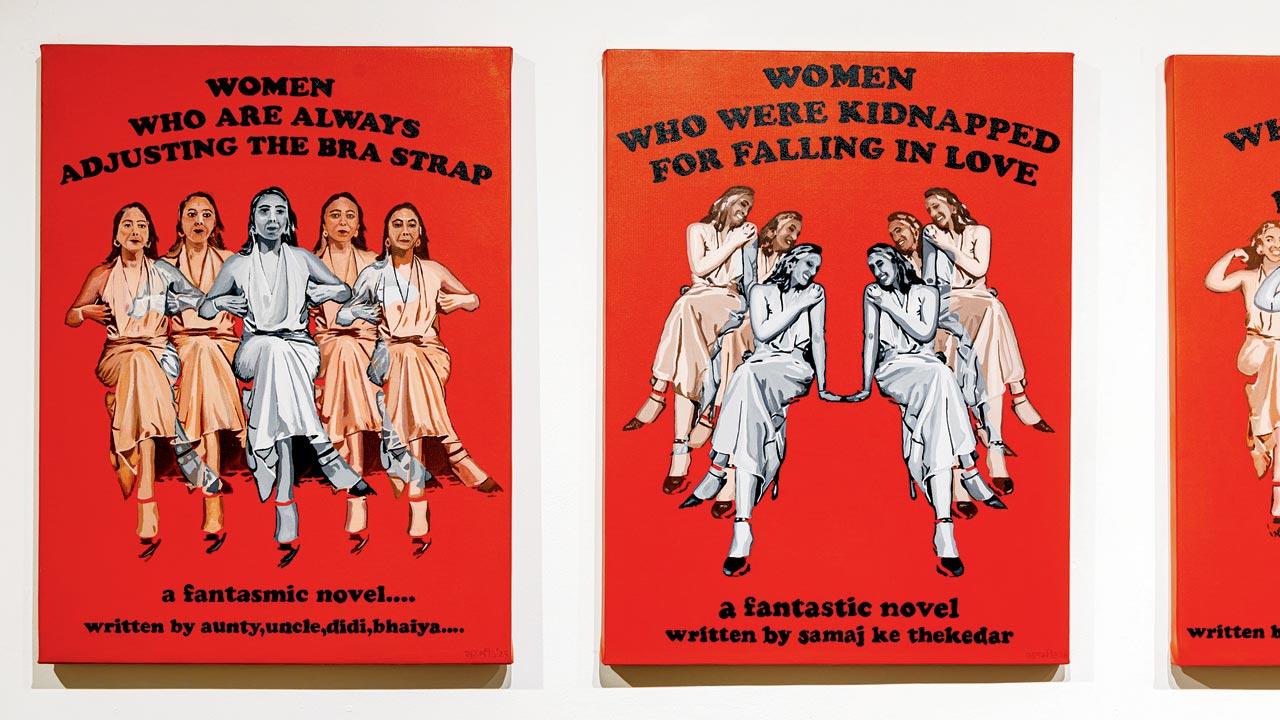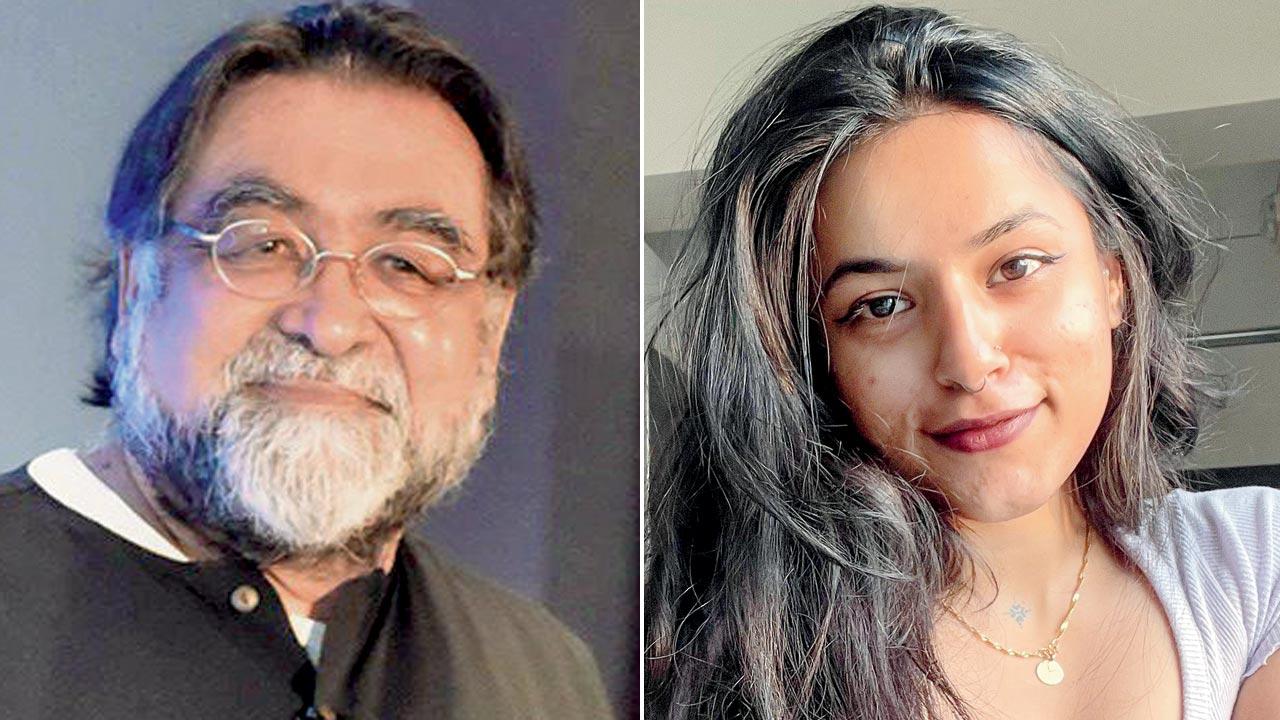At a panel discussion, experts will discuss the portrayal of female desire in advertisements and its cultural fallout

I Touch My Breasts So I Am i by Dianna Mohapatra, mixed media on paper, 2024. Pics Courtesy/Apre Art House
How many times have we seen advertisements blatantly misrepresent female desire, and by virtue of that, the female body? When this writer jogs her memory, quite a few ‘popular’ ads come to mind. But it isn’t just about the obvious ones — videos that have scantily dressed women clustered around a man applying a deodorant or problematic phrases like ‘men will be men’ which have permeated social conversations — the sexist mindset behind the creation of such advertisements runs much deeper.
This Friday, a panel discussion, Female Desire in Advertising: Breaking or Reinforcing Cultural Taboos? featuring ad-filmmakers Prahlad Kakar and Kopal Naithani, writer and filmmaker Ria Singh, filmmaker and visual artist Jessica Sadana and Praveena Venugopal, the creative director of MyMuse will gather at APRE Art House for a conversation on how advertising shapes female desire in an one-hour session moderated by Ramya Rao, executive producer at Oink Films.
ADVERTISEMENT
 A view of the gallery space
A view of the gallery space
Inspired by the ongoing exhibition, My Peeking, Red Bra Strap, the discussion will lay out a dialogue that examines the various factors that impact the perception of female desire in media. “Given that advertisements reflect contemporary socio-cultural thought, their role in shaping ideas of femininity, desire, and agency requires a conversation, particularly within the context of Indian culture and its cultural taboos,” Prerna SM Jain, gallery director, shares.
It is the catchiness of advertisements that make them highly influential and acceptable; a trait that can set dangerously wrong precedents. “Growing up, the closest thing to a conversation about pleasure was either a hushed condom video squeezed in the middle of a cricket match, or some bizarre euphemism that made no sense. And of course, the messaging was almost always male-centric. For the longest time, advertisements told us that being desirable meant being fair-skinned, slim, and youthful, while female pleasure wasn’t even part of the conversation,” Venugopal points out.
 Women who are always adjusting the bra strap; Women who were kidnapped for falling in love by Manmeet Devgun, acrylic on canvas, 2025
Women who are always adjusting the bra strap; Women who were kidnapped for falling in love by Manmeet Devgun, acrylic on canvas, 2025
The operating system behind these thoughts obviously trace their roots to patriarchal ideologies as Kakar explains, “Advertisement is a funny psychological game. It subtly seduces you to believe in something rather than the thought being hammered to your head.
The idea that women have to be a certain way for the male gaze is deeply rooted in centuries of patriarchal conditioning. The economics of advertisement actually picks up on that flaw to sell the same idea to the masses, quite similar to Pavlov’s Theory. The whole thing is exploitative but not without its base.”
 Prahlad Kakar and Praveena Venugopal
Prahlad Kakar and Praveena Venugopal
This prompts us to ask, has there been positive change? Venugopal mentions a silver lining. “Women were either objects of desire or passive participants, never in control of their own narratives. But things are shifting. We’re seeing ads that talk about intimacy as a two-way street, where confidence and comfort matter more than conforming to some unrealistic beauty standards. Though the stigma is real, the conversation is evolving. That is progress,” she summarises.
ON April 4; 7 pm to 8 pm
AT APRE Art House, Sanghvi House, 3rd Pasta Lane, Colaba.
LOG ON TO @apremumbai (to register)
FREE
 Subscribe today by clicking the link and stay updated with the latest news!" Click here!
Subscribe today by clicking the link and stay updated with the latest news!" Click here!







